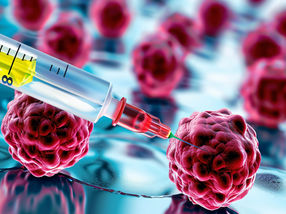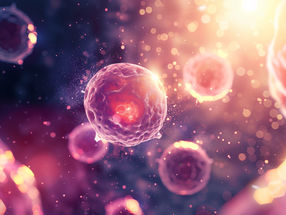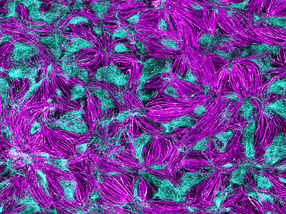New Study Published in PNAS Confirms Potential Utility of Marillion´s Nanoparticle Technology for Tumor Targeting Agents
Marillion Pharmaceuticals, an emerging biotechnology company developing cancer therapeutics, announced that the science underlying its core technology was published in the "Proceedings of the National Academy of Sciences" (PNAS). Marillion´s nanoplatform conjugates tumor-homing molecules to naturally occurring nanoparticles responsible for lipid transport throughout the body. The adapted nanoparticles are able to deliver anti-cancer drugs directly into tumor cells. The technology was developed by scientists from the University of Pennsylvania who helped found the company.
Marillion´s nanoparticles, called conjugated lipoproteins, are less than 25 nm in diameter. Because of their small size they can pass through blood vessel walls to ferry their cargo of anti-cancer drugs to targeted receptors and directly into the cancer cells, leaving the surrounding healthy tissue unaffected.
There is a great deal of research activity underway attempting to apply nanoparticle technology to cancer therapy. However, many of the nanoparticles currently being developed are synthetic and may themselves prove toxic to the body, precisely because of their ultra-small size and complex interactions with tissues. Marillion intends to avoid these problems by adapting naturally occurring nanoparticles, which are less susceptible to these toxic effects.
Marillion´s natural nanoparticles have a number of potential advantages. They are completely biodegradable, have a long half-life in the circulation, can be used with numerous types of targeting agents, are capable of delivering a variety of different types of drugs, and are multifunctional, allowing them to be "loaded" with imaging and therapeutic agents both inside and on the surface of the nanoparticle. Marillion is currently using its nanoparticles to carry the widely used chemotherapeutic drug paclitaxel into ovarian tumors, and it plans to initiate clinical trials with its first nanoplatform-based drugs within the next two years.
Most read news
Topics
Organizations
Other news from the department research and development

Get the life science industry in your inbox
From now on, don't miss a thing: Our newsletter for biotechnology, pharma and life sciences brings you up to date every Tuesday and Thursday. The latest industry news, product highlights and innovations - compact and easy to understand in your inbox. Researched by us so you don't have to.























































